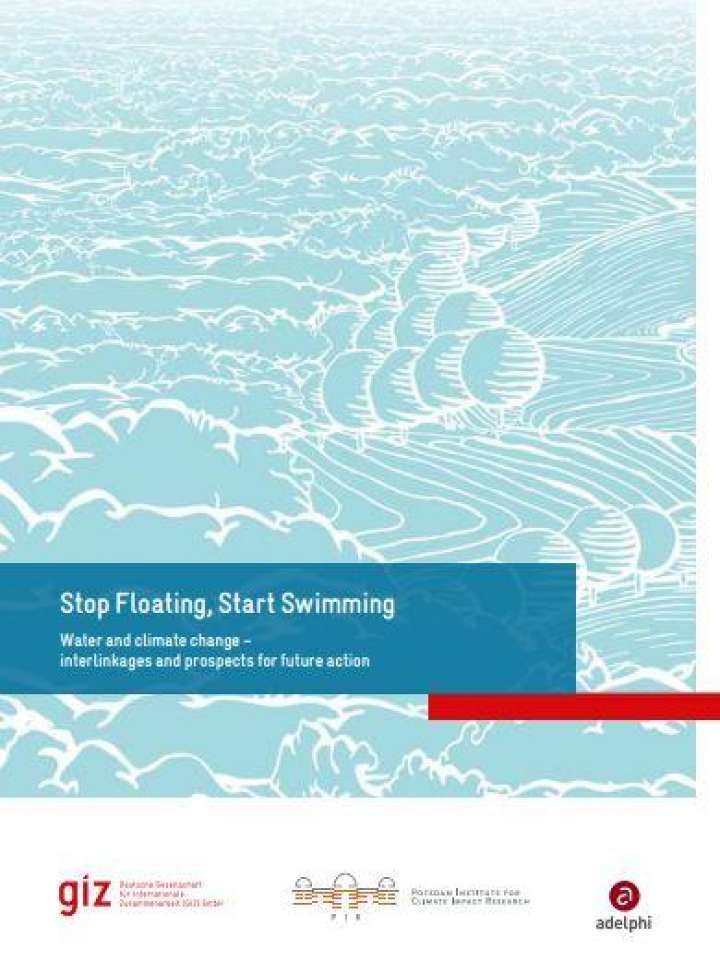Stop floating, start swimming: Water and climate change – interlinkages and prospects for future action
Water and climate change are inextricably linked. As rising temperatures spur the hydrological cycle, climate change will affect water availability and quality, as well as hydrological variability and extremes, such as floods and droughts. Actions in the water sector, including water resources management, as well as water supply and sanitation services, will substantially shape the resilience of communities and ecosystems.
This report aims at improving the understanding of complex interrelations between climate change and water, and, based on this understanding, it intends to identify and showcase the most adequate water actions for improving climate resilience and mitigating greenhouse gas emissions. Synthesising state-of-the-art knowledge and research from a physical as well as from a political perspective, the report recommends appropriate action, while referring to good practices and methodologies. Thereby, the report primarily targets water practitioners, decision-makers in the water sector, and the water expert community, aiming to help them better understand how the water sector and water-related activities can specifically contribute to climate mitigation and adaptation goals. However, serving as a comprehensive knowledge base, the report does not solely provide evidence-based information for water actors, but also for climate change experts and practitioners.
Eventually, it is time for the water sector to confidently rely on and promote its own strengths, while taking even more responsibility in shaping the future of climate action. For this reason, the present report encourages water stakeholders to further account for the given realities of international and national climate frameworks and structures, while actively developing pivotal water solutions for their successful implementation. In other words – Stop Floating, Start Swimming!
Explore further
